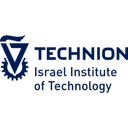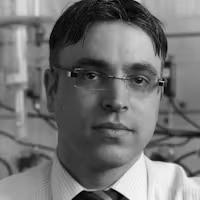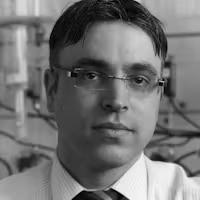Study nanomaterial-based sensors for medical diagnostics, environmental monitoring, and security detection systems.
Study nanomaterial-based sensors for medical diagnostics, environmental monitoring, and security detection systems.
This advanced course explores novel sensing technologies based on nanomaterials, covering their fabrication, characterization, and practical applications. Students learn about various nanosensor types including nanowires, carbon nanotubes, metal oxides, and polymeric nanostructures. The course emphasizes interdisciplinary connections between chemistry, physics, biology, and engineering while focusing on real-world applications in disease diagnosis, environmental monitoring, and security systems. Through lectures and hands-on projects, students develop creative thinking skills and participate in multicultural group work.
4.8
(227 ratings)
22,579 already enrolled
Instructors:
English
پښتو, বাংলা, اردو, 3 more
What you'll learn
Understand nanomaterial properties and fabrication methods
Master principles of nanosensor design and operation
Analyze different types of nanomaterial-based sensors
Apply nanotechnology to practical sensing applications
Develop innovative solutions using nanomaterials
Evaluate nanosensor performance and applications
Skills you'll gain
This course includes:
282 Minutes PreRecorded video
5 assignments
Access on Mobile, Tablet, Desktop
Batch access
Shareable certificate
Get a Completion Certificate
Share your certificate with prospective employers and your professional network on LinkedIn.
Provided by

Top companies offer this course to their employees
Top companies provide this course to enhance their employees' skills, ensuring they excel in handling complex projects and drive organizational success.





There are 5 modules in this course
This comprehensive course explores advanced nanotechnology and nanosensor applications, focusing on four key areas: nanowire-based sensors, carbon nanotube sensors, metal oxide nanostructures, and polymeric nanostructures. The curriculum culminates with electronic skin applications, demonstrating practical implementations of nanotechnology. Students learn through detailed lectures, case studies, and hands-on projects that emphasize both theoretical understanding and practical applications.
Nanowire-based Sensors
Module 1 · 1 Hours to complete
Carbon Nanotube-based Sensors
Module 2 · 1 Hours to complete
Sensors based on Nanostructures of Metal Oxide
Module 3 · 2 Hours to complete
Sensors based on Polymeric Nanostructures
Module 4 · 1 Hours to complete
Electronic Skin Based on Nanotechnology
Module 5 · 9 Hours to complete
Fee Structure
Instructor
Innovative Leader in Nanotechnology and Disease Diagnosis
Professor Hossam Haick is a distinguished expert in nanotechnology, serving as the Head of the Laboratory for Nanomaterial-Based Devices (LNBD) and Volatile Biomarkers at the Technion - Israel Institute of Technology. His pioneering work focuses on developing nanosensors for non-invasive disease diagnosis, contributing significantly to advancements in medical technology. Prof. Haick has received numerous accolades for his contributions to science, including the prestigious Marie Curie Excellence Award, the ERC Award, and the FP-7 Health Award. He has been recognized with over 42 international honors, such as being named a Knight of the Order of Academic Palms by the French Government and featured on the "List of the World’s Top 35 Young Scientists." As the founder and leader of a European consortium comprising eight universities and companies, he is at the forefront of creating advanced nanosensors for disease diagnostics. Additionally, Prof. Haick plays an active role in academia as an associate editor for two scientific journals and serves as an advisory consultant to the Chemical Abstracts Service (CAS). His expertise is sought after by several national and international organizations, where he contributes as a scientific evaluator for projects within the European Commission. Through his innovative research and leadership, Prof. Haick is making significant strides in enhancing healthcare through technology.
Testimonials
Testimonials and success stories are a testament to the quality of this program and its impact on your career and learning journey. Be the first to help others make an informed decision by sharing your review of the course.
Frequently asked questions
Below are some of the most commonly asked questions about this course. We aim to provide clear and concise answers to help you better understand the course content, structure, and any other relevant information. If you have any additional questions or if your question is not listed here, please don't hesitate to reach out to our support team for further assistance.



